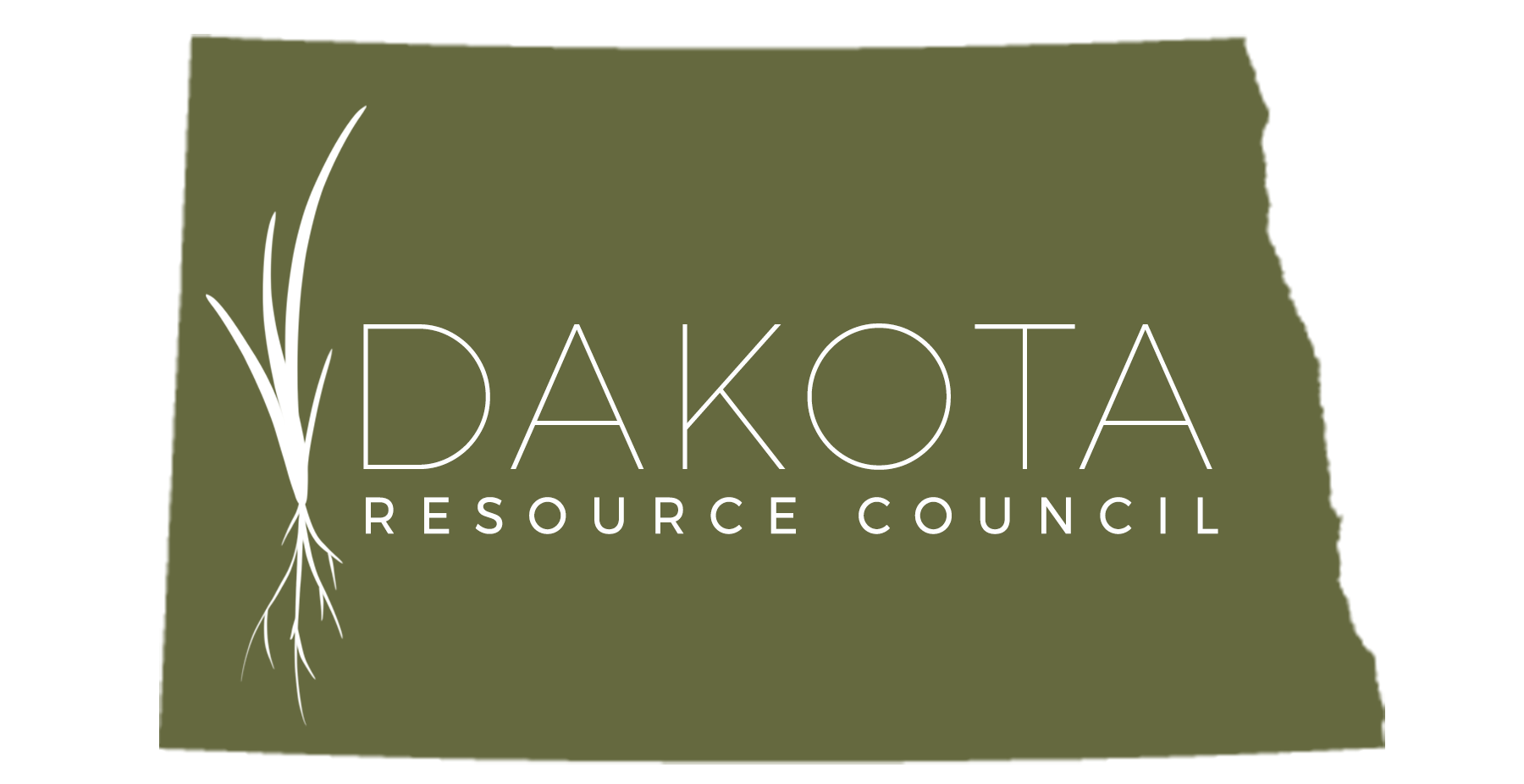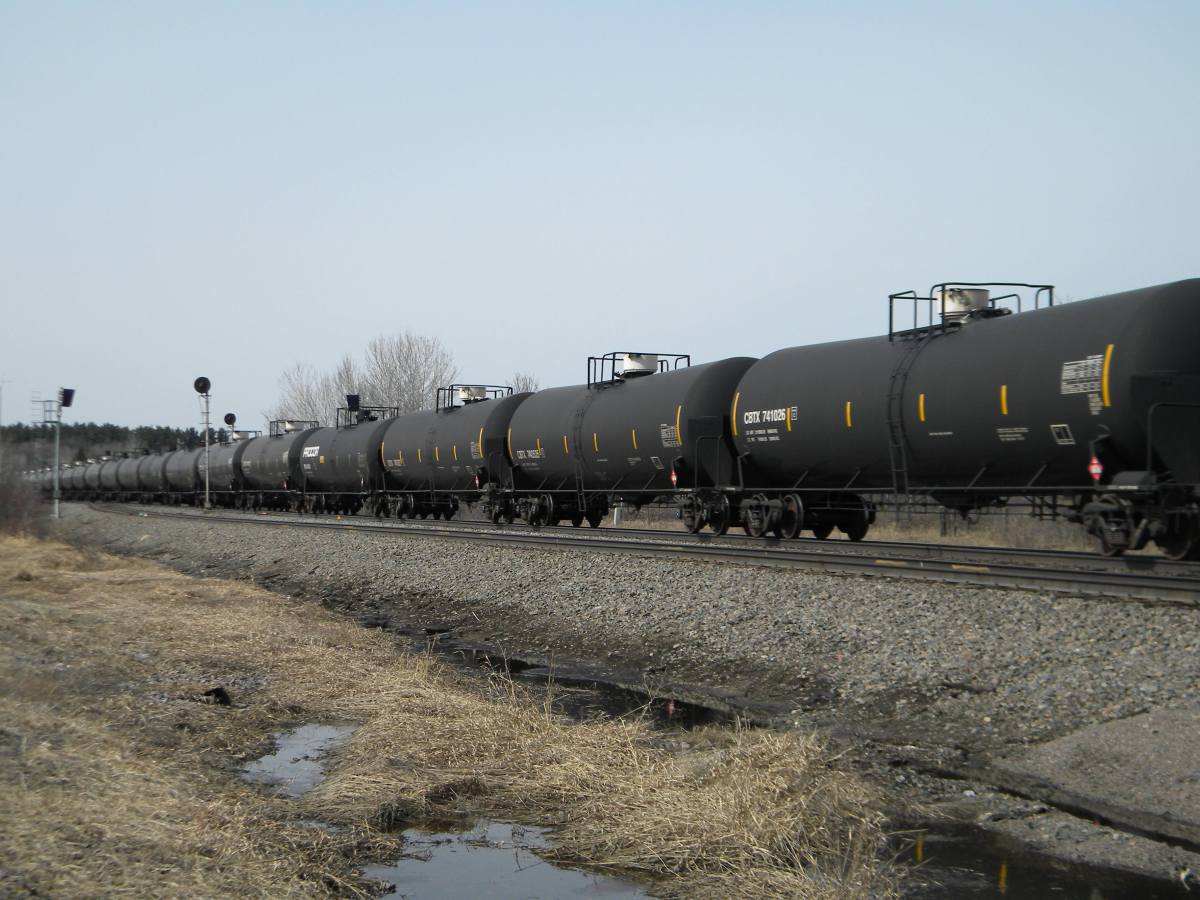An oil-tank train with crude oil from the Bakken shale fields of North Dakota travels near Staples, Minn., on April 15, 2014-Mike Cronin—AP
Amid Federal Safety Push, North Dakota Considers New Energy Regulations
Can a state at the center of the oil boom regulate the industry that propelled it to prosperity?
After multiple derailments of tank cars carrying crude oil, the federal government is weighing new rules to bolster the safety of trains transporting flammable material. But the safety push could run into trouble in North Dakota, the state at the heart of the oil boom and the source of much of the crude sliding along the nation’s rails.
As the shale-oil boom accelerated in recent years, a series of derailments have raised questions about the safety of oil trains. In July 2013, a 74-car train carrying crude oil crashed in a small Quebec town, killing 47. Four months later, broken tracks led to a derailment in Alabama; a month after that, 20 cars of crude exploded after a collision outside Casselton, N.D., forcing residents to evacuate. In April, 17 tanks derailed near downtown Lynchburg, Va., sending a plume of fire spitting into the air outside a children’s museum.
Late last month, the U.S. Department of Transportation released a series of proposals to safeguard oil cars traveling from the Bakken shale formation in North Dakota to refineries around the country, often more than a thousand miles away. Among the proposals were phasing out tank cars that have proven vulnerable to explosions, imposing speed restrictions, and requiring trains to notify local first responders as they pass through states.
“Safety is our top priority,” said Transportation Secretary Anthony Foxx of the department’s proposal, which he called the “most significant progress yet in developing and enforcing new rules to ensure that all flammable liquids, including Bakken crude and ethanol, are transported safely.”
But in North Dakota, such liquid has been the lifeblood of a surging economy. Since the advent of new technology that helped companies tap the Bakken formation, North Dakota has enjoyed a massive energy boom. The unemployment rate has dropped to 2.7%, the lowest in the nation. Incomes are rising. And a sparsely populated state sprawled across the harsh northern prairie is suddenly adding well-paying jobs faster than it can fill them. As the U.S. economy slumped into recession and struggled to fight through a sluggish recovery, North Dakota was a rare bright spot on a bleak economic horizon.
Which may be why Foxx’s comments didn’t go down so well in the state. Last week, when he and U.S. Energy Secretary Ernest Moniz attended an energy policy summit in the state capital of Bismarck, Governor Jack Dalrymple jumped on the perceived criticism, asking why Bakken crude has been singled out in federal studies.
“The risk level is higher than we’ve seen in other parts of the country,” Foxx said, according to local reports. “We’ve got to raise our game on safety.”
But it is a matter of dispute whether shale oil from the Bakken is more volatile than traditional oil, and thus prone to explosion. As Washington considers new regulations, the state is undertaking its own study of whether and how companies should treat oil at the wellheads before transporting it.
In the coming weeks, the North Dakota Industrial Commission will hold public hearings to solicit input about the possibility of new requirements, says Alison Ritter, a spokeswoman for the North Dakota Department of Mineral Resources. The session will be just the second public hearings on energy in the past three years.
It is unclear whether the state is prepared to effectively regulate the very industry that propelled it to prosperity.
The Industrial Commission is composed of three of the state’s top elected officials: Governor Jack Dalrymple, Attorney General Wayne Stenehjem, and Agriculture Commissioner Doug Goehring. All are Republicans.
Dalrymple has been a friend of oil and gas concerns. His 2012 election victory was aided by $287,965 from the oil and gas industry, a total that surpasses than any other industry, according to datacompiled by the National Institute on Money in State Politics. The governor’s office did not directly return multiple requests for comment.
Lynn Helms, the state’s top oil and gas regulator, has industry ties of his own. The director of the Department of Mineral Resources, Helms spent years working for energy firms before taking a job with the Industrial Commission in 1998. This is not uncommon, but critics say it raises questions of whether the regulator should also hold responsibility for promoting oil production.
“How can you regulate an industry, and make sure they’re following all the rules and safeguards on Mondays,” says Kenton Onstad, a Democratic representative in the North Dakota legislature, “and then on Tuesday go out and promote it? It should be either one or the other.”
New requirements for treating crude at the well sites could be costly for the energy businesses that operate in the Bakken. Industry groups say the formation’s crude has no unique dangers and should not be subject to special regulations. The North Dakota Petroleum Council, an industry group, paid engineering and chemical analysis firms about $400,000 to produce a report on the characteristics of Bakken crude. The study determined it did not pose any greater risk for rail transport than other types of crude or transportation fuels. “All of this data does not support the speculation that Bakken crude is more volatile or flammable,” said NDPC vice president Kari Cutting.
Ritter said the Industrial Commission would be expected to issue a decision within 30 days of the public hearing. “The goal,” she says, “is to make crude as safe as possible for transport.”

